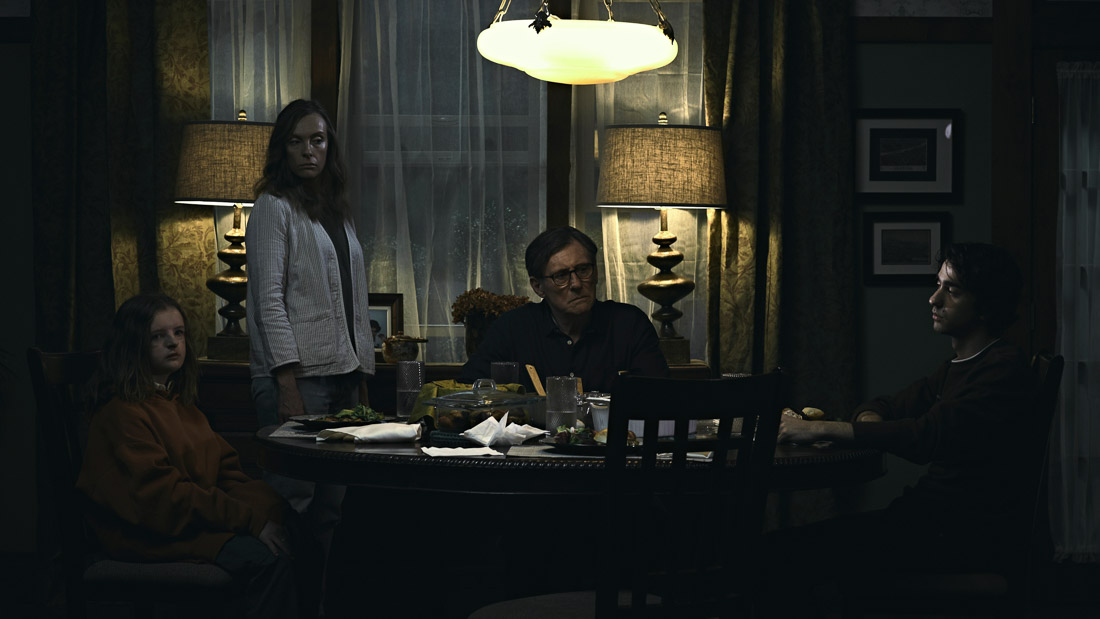Minutes after its midnight premiere at the 2018 Sundance Film Festival, Ari Aster’s “Hereditary” was drawing comparisons to previous Sundance horror hits like “The Babadook” and “It Follows.” Now, Sundance regulars are often correctly skeptical of how those willing to stay up till 2AM for a horror movie respond—it’s often a bit, shall we say, genre-biased—but this is a case in which the film completely lives up to the hype. “Hereditary” is a deeply unsettling film, the kind of horror movie that pulls from relatable human emotions like grief and resentment to ultimately become an absolute nightmare. The “Babadook” and “It Comes at Night” comparisons will undeniably be made, but Aster is actually recalling the more European styles of Roman Polanski and Dario Argento, men unafraid to work in more symbolic, nightmarish registers than what audiences expect from a traditional horror movie and willing to really go there. In fact, the ways in which Aster defies traditional expectations is likely to make this a very divisive flick when it’s released by A24 later this year, although these conversation-starters are typically the movies that last the test of time. At least the nightmares it produces will.
The always-great Toni Collette does possibly the best work of her career as Annie Graham, an artist (she designs miniature models that often replicate her own home life, which is clearly a reference to a filmmaker producing a film that he’s admitted comes from his own personal life) and mother of two. Annie is married to Steve (a grounded Gabriel Byrne) and is raising teenagers Peter (Alex Wolff) and Charlie (Milly Shapiro). As the film opens, Annie is dealing with the loss of her mother, from whom she was relatively estranged. The tumult of emotions that come from losing a loved one that you didn’t particularly like is incredibly well-captured by Collette. She’s not as sad as she “should be,” but there’s still something unsettled in the air around the Graham family. And it’s not only because she may have seen the ghost of her mother in the corner of her studio.
“Hereditary” is a film that’s best gone into ice cold, so I’ll be incredibly vague from here. Suffice to say, something horrible happens to the Graham family—and I mean so horrible you may need to pause the film and decide if you can continue when you watch this from home (and I wouldn’t blame you if you can’t). You should persevere. Not only is it an incredibly daring turn for the film to take but it really serves as the hill from which the rest of this rollercoaster of a movie builds up speed. Like a great thrill ride, what’s most remarkable about Aster’s confident direction is how deftly he paces his film. It’s not a film built on jump scares or action sequences—it is a metronomic series of hills and valleys, always propelling viewers forward, strapped to their seats in fear. Horror filmmakers have often used tragedy to open the door to the supernatural, but Aster’s is one of the most propulsive I’ve ever seen—it’s not a long hallway to horror as much as it is a chute that opens up under your feet, dropping you into Hell.
None of “Hereditary” works at all without the committed, amazing performance by Toni Collette, one that’s almost an extension of the way she grappled with grief and the other side in her Oscar-nominated work in “The Sixth Sense.” Annie Graham is a remarkably complex character for any kind of film, but particularly horror. Aster and Collette take huge risks in sketching a woman who may not be all that sane and may not be all that kind. Annie mentions that her mother may have had DID, leading to a suspicious reading of the film’s title, and allowing for enough skepticism over what’s happening. Even more daring, Collette and Aster allow Annie to be unlikable. There’s a reading of the film that might work—I need to see it again—that it’s about a woman who doesn’t completely like either of her children.
Collette’s emotional register balances Aster’s undeniable skill with composition and sound design. It’s a film that has all the jump scares of a “The Conjuring” movie but is willing to take more risks with storytelling. For Aster, when the fabric of life is torn in half by tragedy it allows all kinds of evil things to come to the surface. There will be different interpretations of exactly what “Hereditary” is about, and that kind of open horror storytelling often infuriates viewers looking for a traditional hero-and-villain story (think of the response that greeted “mother!” for example). But people will return to “Hereditary.” It’s a film that, as cheesy this sounds, haunts its viewers, planting terrifying imagery in their head. It will make you hug your loved ones and maybe even call your mom. And you might even start sleeping with the lights on.












